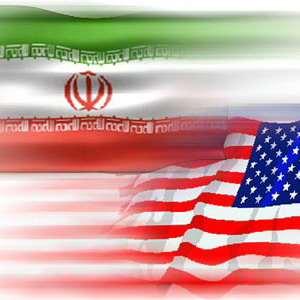Expect No Profound Changes
Commentary by Ebrahim Mottaqi, university professor and Iran-US affairs analyst on Iran-US affairs and the Alavi Foundation case

On Thursday last week, a civil claim was filed by US federal prosecutors in New York for the forfeiture of Alavi Foundation’s properties in New York and some other American cities. The foundation is suspected of being a front for the Iranian government. Ebrahim Mottaqi, Iran-US affairs analyst has commented on the story:
The United States’ diplomatic approach towards Iran is within the fixed framework designed by American policy-makers and strategists for dealing with the so-called ‘rogue’ states and political entities. In Obama’s term, Americans seem to be following a project of limited, step-by-step reconstruction of relations. Obama prefers to adopt a reconciliatory tone in his political rhetoric, but he has avoided applying a corresponding approach in strategic domains.
Obama’s intention is not adequate to modify the sanction policy. For Iran to be removed from the list of countries sponsoring terrorism, the US departments of State and Defense should accredit that Iran’s regional and international policies are harmless. It is based on such reports that the US president can modify its Iran policy. But as long as those departments, FBI or CIA have not approved of Iran’s harmless policies, Obama has to work within the existing traditional framework.
There are observers who thought that with Obama’s presidency, US diplomatic policies will undergo profound changes, but we should always have in mind there are no countries in the world -particularly the United States where the bureaucratic structure, not individuals, decide- where one single politician can change the diplomatic course. The president follows what the experts and political institutions prescribe. Hence, despite Obama’s reconciliation policy, we should not expect any alterations in US strategic decisions.
A row has broken out during the recent days after federal investigators have accused the Alavi Foundation of being a front for the Iranian government. The foundation has been accused of having exchanges with the UN-sanctioned Melli Bank of Iran and some strategic and economic Iranian state-run institutions. The case has been brought up with regard to UN resolutions 1737, 1747, 1803 and 1853 that aim to limit Iran’s monetary institutions. Therefore, I do not see it as a violation of the right to perform religious practices. Religious centers in the United States enjoy freedom and independence. We should wait until the result of FBI investigations is announced.
The United States’ diplomatic approach towards Iran is within the fixed framework designed by American policy-makers and strategists for dealing with the so-called ‘rogue’ states and political entities. In Obama’s term, Americans seem to be following a project of limited, step-by-step reconstruction of relations. Obama prefers to adopt a reconciliatory tone in his political rhetoric, but he has avoided applying a corresponding approach in strategic domains.
Obama’s intention is not adequate to modify the sanction policy. For Iran to be removed from the list of countries sponsoring terrorism, the US departments of State and Defense should accredit that Iran’s regional and international policies are harmless. It is based on such reports that the US president can modify its Iran policy. But as long as those departments, FBI or CIA have not approved of Iran’s harmless policies, Obama has to work within the existing traditional framework.
There are observers who thought that with Obama’s presidency, US diplomatic policies will undergo profound changes, but we should always have in mind there are no countries in the world -particularly the United States where the bureaucratic structure, not individuals, decide- where one single politician can change the diplomatic course. The president follows what the experts and political institutions prescribe. Hence, despite Obama’s reconciliation policy, we should not expect any alterations in US strategic decisions.
A row has broken out during the recent days after federal investigators have accused the Alavi Foundation of being a front for the Iranian government. The foundation has been accused of having exchanges with the UN-sanctioned Melli Bank of Iran and some strategic and economic Iranian state-run institutions. The case has been brought up with regard to UN resolutions 1737, 1747, 1803 and 1853 that aim to limit Iran’s monetary institutions. Therefore, I do not see it as a violation of the right to perform religious practices. Religious centers in the United States enjoy freedom and independence. We should wait until the result of FBI investigations is announced.

